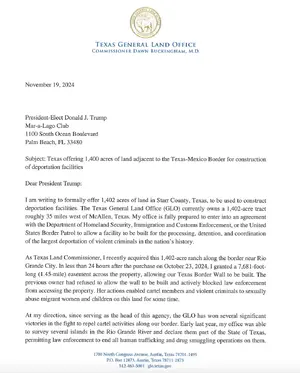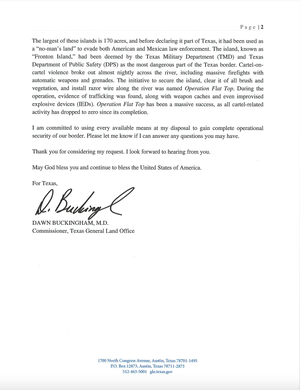- Messages
- 10,876
(Cont’d)
“… Many Trump critics are liable to wave off such considerations, because they assume that a second Trump administration will have no problem breaking the law en masse to deport large numbers of people. Even if true, that doesn’t exempt them from the logistical realities: beds in detention, seats on planes.
That this mass deportation will happen with no legal restraints, accountability or oversight is by no means a premise to be granted without contest. Because resigning oneself in advance to a maximalist vision of mass deportation helps accomplish the same goal: making immigrants feel they have no choice but to leave the United States.
There are two previous occasions in which the U.S. federal government can be said to have engaged in mass deportation — around the 1930s and the 1950s. Both entailed horrific conditions for those caught and deported, and the tearing apart of families with claims to both the United States and other countries. But in both cases, the federal government ultimately took credit for “deporting” some people it never actually laid hands on — those who had been pressured or terrorized into leaving.
In the 1930s, high-profile raids in Los Angeles didn’t net that many immigrants to deport — the real impact was in sending the message that raids might happen, leading some immigrants to pick up and leave and many more to stay home and out of the public eye.
In 1954 and 1955, the so-called Operation Wetback probably arrested and removed fewer immigrants than had been removed the year before — historians think of it as a retroactive P.R. campaign for the previous year’s efforts, but one that had effects of its own. In the first month of Operation Wetback, one historian estimates, 60,000 immigrants left Texas voluntarily — about as many as the government apprehended throughout the country per month. …”
——
So-called self-deportation is an express goal. And I have no objection to encouraging self-deportation via generally more focused and better funded enforcement of US immigration laws that include basic due process. And I certainly have no objection to deporting anyone convicted of criminal activity in the U.S. (if that makes the most sense — it probably makes more sense for us to incarcerate a murderer than deport him and hope he doesn’t sneak back in again).
But if the means/ends approach bends toward terrorizing people and separating families and holding people in brutal conditions, then we have something different on our hands. We’ll see. Our best hope is that the Administration opens with some whiz bang raids on a few targeted cases for the PR rush and falls back to rational but increased enforcement actions consistent with existing law. But they certainly don’t sound like that is the plan.
“… Many Trump critics are liable to wave off such considerations, because they assume that a second Trump administration will have no problem breaking the law en masse to deport large numbers of people. Even if true, that doesn’t exempt them from the logistical realities: beds in detention, seats on planes.
That this mass deportation will happen with no legal restraints, accountability or oversight is by no means a premise to be granted without contest. Because resigning oneself in advance to a maximalist vision of mass deportation helps accomplish the same goal: making immigrants feel they have no choice but to leave the United States.
There are two previous occasions in which the U.S. federal government can be said to have engaged in mass deportation — around the 1930s and the 1950s. Both entailed horrific conditions for those caught and deported, and the tearing apart of families with claims to both the United States and other countries. But in both cases, the federal government ultimately took credit for “deporting” some people it never actually laid hands on — those who had been pressured or terrorized into leaving.
In the 1930s, high-profile raids in Los Angeles didn’t net that many immigrants to deport — the real impact was in sending the message that raids might happen, leading some immigrants to pick up and leave and many more to stay home and out of the public eye.
In 1954 and 1955, the so-called Operation Wetback probably arrested and removed fewer immigrants than had been removed the year before — historians think of it as a retroactive P.R. campaign for the previous year’s efforts, but one that had effects of its own. In the first month of Operation Wetback, one historian estimates, 60,000 immigrants left Texas voluntarily — about as many as the government apprehended throughout the country per month. …”
——
So-called self-deportation is an express goal. And I have no objection to encouraging self-deportation via generally more focused and better funded enforcement of US immigration laws that include basic due process. And I certainly have no objection to deporting anyone convicted of criminal activity in the U.S. (if that makes the most sense — it probably makes more sense for us to incarcerate a murderer than deport him and hope he doesn’t sneak back in again).
But if the means/ends approach bends toward terrorizing people and separating families and holding people in brutal conditions, then we have something different on our hands. We’ll see. Our best hope is that the Administration opens with some whiz bang raids on a few targeted cases for the PR rush and falls back to rational but increased enforcement actions consistent with existing law. But they certainly don’t sound like that is the plan.




